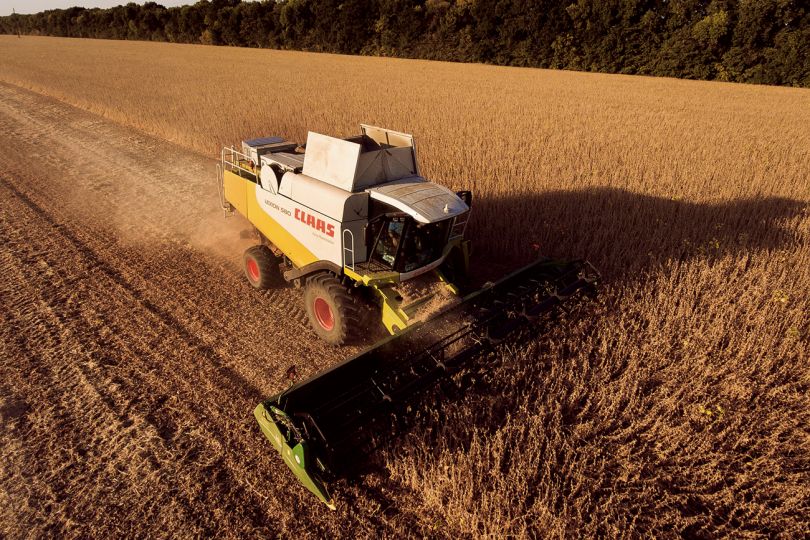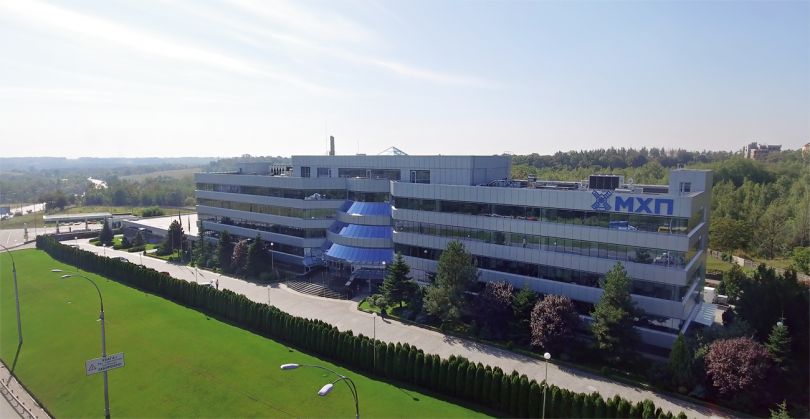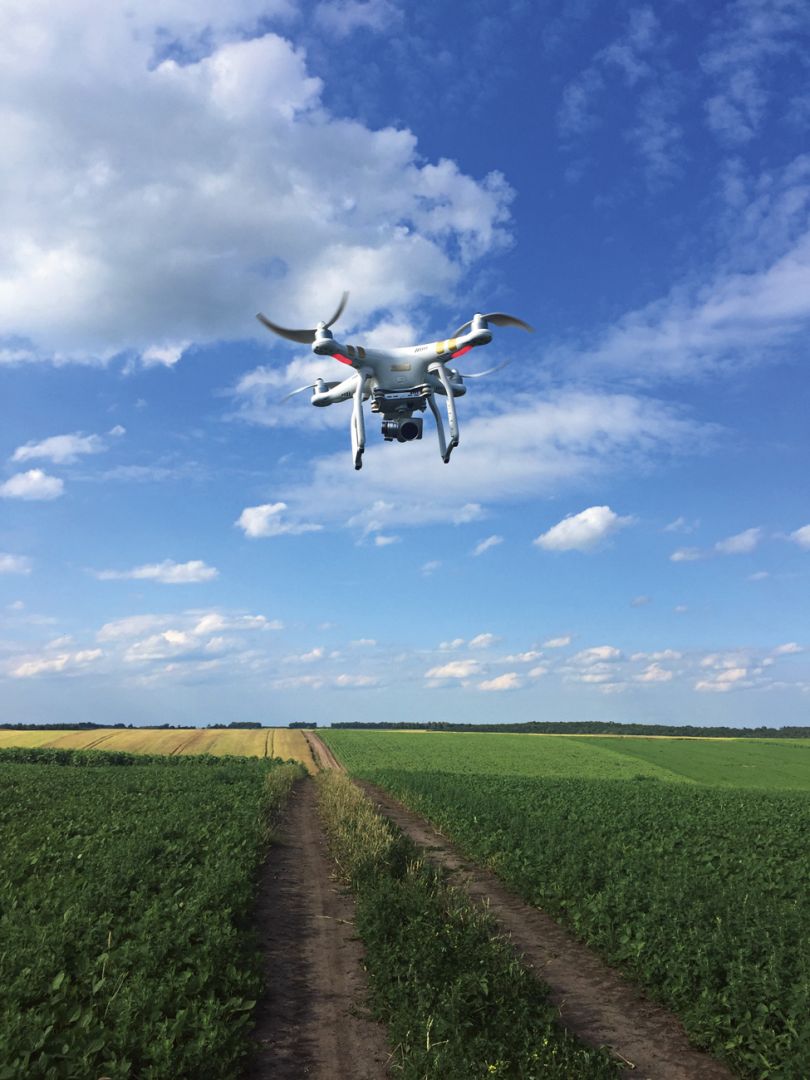The purpose with which the present-day company’s story started has already been achieved. Destinations has interviewed Yuriy Melnyk, the First Deputy Chairman of MHP board, to find out about the future goals, development priorities and strategic plans.
– In your opinion, what are the key prospects of growth of the Ukrainian agricultural industry in general, and which lines of development does MHP see as the priority and strategic ones?
MHP is one of the largest agricultural holdings in Ukraine, and as we are integrated into the general system of the agro-industrial complex of Ukraine, we both depend on and influence that system considerably. It is important to understand the current environment to determine the potential of the Ukrainian agricultural industry in general and MHP in particular. In terms of figures, the agriculture generates about 12% of the Ukrainian GDP, creates more than 10% of jobs, and the export of the agricultural products has grown twice for the last decade and has reached around 40% of all the national export. The statistical data demonstrate how important the industry is for the Ukrainian economy. However, on the other hand, it raises some relevant issues: high employment rates demonstrate low performance and insufficient technological level of production, and the considerable share of the agro-industrial complex in the structure of Ukraine’s export proceeds is the low added value of raw materials mostly. The economic environment definitely cannot be changed quickly, so the common task of the government and the business community is to look for the opportunities to most efficiently use the resources of Ukraine’s agro-industrial complex. At the same time, in addition to the agricultural industry, the country must develop other industries including the export-oriented ones which will promote GDP growth and economic development in general, beyond the agriculture. Therefore, as a citizen I believe that industrial development of the country must be one of the priorities although the agro-industrial complex is the industry in which we live, work and develop today.

As for the growth factors of the agricultural industry, it seems to me that we should focus on several most relevant sectors.
Firstly, it is a matter of higher performance of production facilities: there must be more crops and efficient land use. Ukraine possesses one tenth of the global reserves of the rich black soil, and 72.1% of the area are agricultural lands. However, the Ukrainian agricultural companies get the proceeds per hectare that are two or three times lower than their western colleagues do, and performance indicators of the Ukrainian agro-industrial complex are far from the indicators of our main competitors on the global agricultural arena.
Secondly, staff performance must be improved. Let me express the opinion which is not very popular but still is objective: the agro-industrial complex will not turn into an inexhaustible resource for creating jobs in Ukraine, and it would be erroneous to count on that. While the scope of agricultural production is much higher in the western countries, employment rates in that industry do not exceed 2 to 3% of work force. The agro-business model with a high employment rate and low performance results in the lower competitive ability. So we must engage and implement the existing technical and technological solutions which will help increase staff performance and competitive ability of the Ukrainian agricultural product.
The third sector is export. In the first place, the share of exported agricultural products with the high added value must be increased. Everyone talks about that, but few companies demonstrate such growth. However, MHP’s experience proves that it is quite possible: our main export product – poultry – has the high added value. In fact, this must be a key economic principle for all the players in the agro-industrial complex. Another important factor is entry into new markets. The current export portfolio of MHP includes 80 countries: the export volumes differ, but the step taken once the market is open is to fill the market and scale up our presence. Our team is working to open new markets, such as Japan, Singapore and China: they have a big product capacity for our supplies, so we find them extremely prospective. The final element is corresponding certification of the Ukrainian agricultural products for export supplies and awareness of the Ukrainian brand because it will give us a chance to compete in the environment of each country’s “economic nationalism”. This goal must be pursued both for the agricultural business and government authorities, such as the newly established Ministry of Economic Development, Trade and Agriculture of Ukraine and the State Service of Ukraine on Food Safety and Consumer Protection. MHP pays a lot of attention to its reputation and promotion of its export brands on the global market where we act as suppliers but not producers. It is difficult and will probably take several years, but we strive to create awareness of Ukrainian exported products owing to the partnership business model. At some point, we spent several years to turn Nasha Ryaba into the national recognisable brand. Now the same must be done on the global food arena.
Probably, another sector with the unlocked potential is niche industries. For instance, the Ukrainian agro-industrial complex has ample opportunities owing to the plant protein: peas, beans, lentils and chickpeas. These crops are not within the companies’ packages today, as they require an individual field approach and other specifics of export. In addition to the existing demand and weak competition, the arguments in favour of this niche also include its accessibility for the medium-sized and small agro-business.
There is no denying that we should develop all the sectors of the agriculture giving us the Ukrainian organic products. The fresh products which can be exported, e.g. to the European Union, include fruit, vegetables, berries, nuts and, of course, poultry, which can be delivered both frozen and chilled owing to the proximity of the European markets. In the end, the modern logistical system and adequate organisation of the entire logistical chain enables to deliver meat and other types of animal breeding products branded as Made in Ukraine to any European country with our potential consumers in 36 hours.
When it comes to the strategic vectors of MHP’s development, they are mostly consistent with everything I have listed: increase in performance of production facilities and staff performance, creation of the high-quality product with the high added-value and expansion of export.
– Today MHP agro-industrial holding is one of the global leaders on the poultry market. What enables the company to solve challenges of the global competition and transform the business processes successfully?
First and foremost, it is the purpose. The purpose set by Yuriy Kosyuk, the CEO of MHP, to himself and his team many years ago was that we must be the leader in Ukraine in the poultry industry. The purpose was achieved many years ago as well. There are new challenges ahead: the agricultural holding keeps expanding its capacities and gradually preparing itself for transformation of this purpose.
However, in addition to the leadership in the agricultural production industries we specialise in, I suppose that MHP is the number one company as for the comprehensive approach and vertical integration. It is not about staff administration or management; it is about an efficient combination of crop farming and animal breeding, which you will probably not find in any agricultural holding of Ukraine. MHP possesses production capacities of the entire technological chain of meat production, from rearing, production, storage and logistics of feed, incubator stations, poultry farms, product treatment plants and plants processing production waste into bio-gas up to the branched logistical network which allows delivering finished products to the trading networks, franchisee or end consumer. Thus, the vertically integrated business model is one of the determinant factors of the company’s success, including as a player on the external markets.

As the clear purpose has been set, and the successful business model has been developed, the team of people making the entire system work is of special significance for MHP: there are more than 28,000 employees, which is probably the record-breaking headcount for the Ukrainian agricultural business. What makes us special is that all the team members are responsible for achieving the company’s strategic purpose and for their personal contribution.
I believe the synergy of all the factors gives MHP a chance not only to present its products with the high added value and to be a powerful player on the international market but also to demonstrate the potential of the Ukrainian agro-industrial complex to the world.
– MHP uses advanced technologies in different production areas. What AgTech solutions is the agricultural holding focused on in the first place, and what innovation trends does it find the most prospective?
One of our priority tasks is to develop the business model with the highest production margin owing to active introduction of innovations at all stages of production and business processes. We use the modern agricultural technologies and innovation solutions for the agricultural sector to the maximum extent, starting from high-performance seeds, most efficient plant protection methods and mineral fertilisers and the best crosses, up to integral automated management systems with digitalisation functions, artificial intelligence and the Internet of Things. We believe that AgTech has the best prospects.
As for the company’s innovation development, our purpose is to consolidate all the technological solutions which are used, implemented or developed, into the integral system. All the processes used by MHP today have integrated high technologies.
– MHP has initiated MHP accelerator programme and has already launched several commercial solutions with the Ukrainian startups. Do you believe that Ukraine can turn into an agro-innovation cluster for the global market?
I do not think it is going to be a unique largest cluster in the world, but it can definitely be a cluster among the other clusters. On the one hand, it will be encouraged by the high demand for innovation and rapid changes not only among large corporations, such as MHP or the agricultural sector in general, but also the economic and public need as a whole. On the other hand, we have very creative and talented young people generating original ideas, unique products and efficient solutions and creating startups. Our task is to consolidate everything. That is why we have created the programme aimed at searching for and developing startups – it is called MHP accelerator. Two acceleration tours have already been conducted. Last year, more than 130 applications were filed for the first stage; in the end, we selected five teams to cooperate with and to commercialise their product with the subsequent integration into the agricultural holding’s operations. This year, we have selected two startups for the commercial launch and provided four other teams with additional piloting and access to the agrarian holding’s production base for test purposes as well as mentor support by the leading MHP experts. In other words, almost all the finalists of the second stage of MHP Accelerator continue cooperation with the company in different formats, and we are sure that we will obtain customised technological solutions improving the agricultural holding's performance.

I would like to add that MHP accelerator has turned into a sort of trigger of startup development inside MHP’s team as well: we have introduced the corporate Idea and Innovation Bank. Our employees do offer efficient solutions to optimise production processes they are experts in, and we are ready to invest in development of such innovation and quick implementation.
– What development tendencies of the agricultural industry are relevant for Ukraine, and where do you see the Ukrainian agricultural business on the global food arena?
Let’s consider the past a little: a decade ago, the government dreamt that Ukraine would produce 65 million tonnes of grain and oil crops all together. Ukraine produced 91 in 2018, and this year it is going to make 93 million tonnes of grain and oil crops. It is not emphasised, but if you analyse that period, production grew by two or three million tonnes a year, not because of the favourable weather conditions but due to gradual development of efficient land use conditions in the environment of lease, intensified agriculture and involvement of modern equipment and technologies.
Today Ukraine is a global leader in export of sunflower products, including vegetable oil and grist, ranks third in export of rapeseed, fourth in export of barley, fifth in export of wheat, and seventh in export of soya and poultry. In many of the categories, we are inferior to the high-performance conglomerate called the EU, which is 28 countries and over 500 million residents! What we have today is the basis to be developed. Better production and staff performance, creation of products with the high added value, increased focus on priority industries of the agro-industrial complex, all the things I have listed above, are a basic premise which will increase marginality of the Ukrainian agricultural business. And its competitive ability on the global market, accordingly.
– In your opinion, what makes the team work efficient, and what are your personal principles as a manager?
Nothing new: there is a goal to be achieved within certain time frames. If the goal is achieved on time, the team is efficient. Another important criterion used to assess our performance is social focus of business. The MHP land bank, which has been sustainable for the last four or five years, demonstrates that we are trusted owing to our honest lease relations and all the associated lease-based relations.
Economic performance and social responsibility are the main aspects for our team.

As for me, the most valuable thing is professional skills, uncompromising humane attitude to colleagues and community and sense of innovation. The balance of these elements can change subject to the tasks or conditions, but neither of these principles can be sacrificed at work.
– How do you see MHP in ten years?
The company being the largest poultry producer in Europe and developing its business based on innovations and social responsibility.
In the first place, the share of exports of the agrarian products with the high added value must be increased.
All the processes used by MHP today have integrated high technologies. our purpose is to consolidate all of them into the integral system.
Economic performance and social responsibility are the main aspects for our team.







